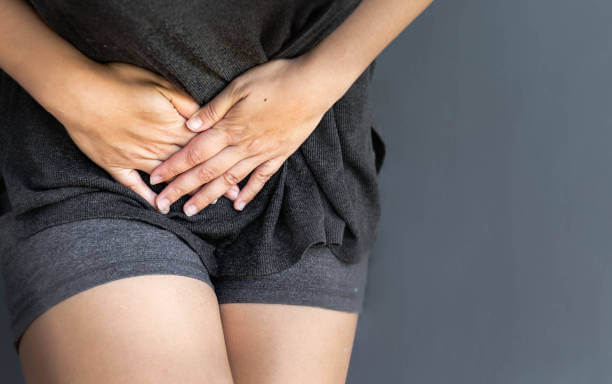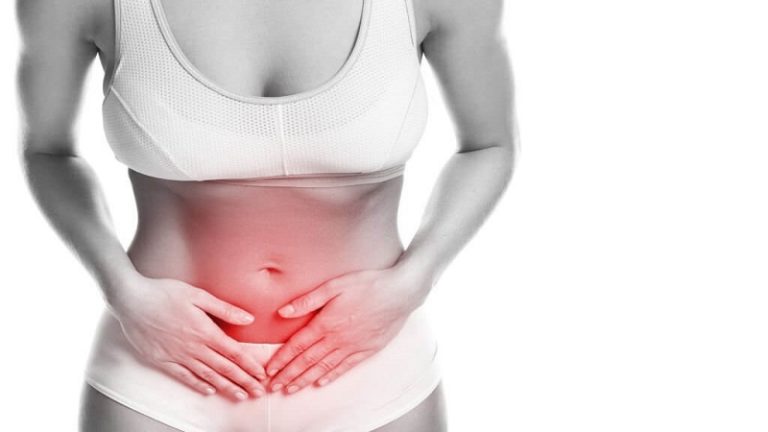There is a principle that, if you experience a warm feeling in your stomach, it can indicate an underlying condition. This can make you feel troubled and anxious if you experience a warm sensation in your lower belly, but don’t worry!
So, why do your stomach feel warm?
Although they may be different, they have something in common. They all result from malfunctioning of the gastrointestinal tract. This is not the site for aspiring authors, or for producing a 12th-grade level English 101 assignment. Stick with me. I am about to present some literature that will educate you on the
Read this article, to get a clear understanding of each of them.
If you’re having trouble swallowing, it might be caused by abnormalities in your esophageal muscles and problems with how quickly your stomach empties
Warm Feeling in the Lower Abdomen: Reasons Explained
Pressure is a factor in many underlying conditions that can cause a warm sensation in the lower abdomen. For example, some causes are discussed here.
1. Heartburn

GI reflux disease affects the digestive system and the way your body absorbs food.
GERD, or ‘gastroesophageal reflux disease’, is a condition where acid or other stomach contents leak back into the esophagus. The lower esophageal sphincter is a circular muscle present between the lower end of the food pipe and the opening of the
Normally, the stomach’s circular muscle opens intermittently at the right time to enable food to enter the stomach. This process will be kept closed at other times in order to prevent food mixed with stomach acid from flowing back.
One of the main causes of stomachaches in people is an open esophagus. The back flow of acid into the esophagus causes damage to the esophagus.
Gastro-esophageal reflux can be caused by a range of other factors, including esophageal motor abnormalities, which affect peristalsis and delayed stomach emptying.
Gastroesophageal reflux disease can be associated with unusual warm sensations in the lower abdomen. Gastroesophageal reflux disease can bring about several other uncomfortable symptoms as well.
Some of the symptoms include –
Heartburn: A burning sensation in the upper region of the chest.
Chest pain: A burning sensation in the upper region of the chest which radiates to the shoulders and spreads to
It may be important for you to seek medical attention if you happen to be experiencing some of these symptoms – accompanied by a warm feeling or even a burning in the lower abdomen. This could confirm the presence of gastroesophageal reflux disorder.
Be sure to seek medical advice if you have any symptoms. Your doctor can help you receive the proper treatment.
2. Peptic ulcer disease
In case of an ulcer, you might experience lower abdominal pain, and when you sit or bend over, you might feel a warm feeling down there.
In this day and age, peptic ulcer disease affects a huge portion of the population, and those with peptic ulcer disease are very common nowadays.
The digestive acid pepsin digests incomplete proteins from food.
Five factors that can be the cause of peptic ulcers include:
Bacterial infections are often incited with prolonged use of nonsteroidal anti-inflammatory drugs (NSAIDs), commonly used to alleviate body pains and fever. Ibuprofen and aspirin are most commonly used. Overuse of other medications, such as steroids, bisphosphonates, or flourier
Peptic ulcers can be tricky symptoms to recognize, as they include abdominal pain and bloating, heartburn, abdominal cramps, stomach fullness, nausea, fatty food intolerance.
Peptic ulcer symptoms include stomach pain, vomiting, blood in the stools and blood in the vomit, features that should never be ignored despite the potentially serious consequences they can lead to.
3. Irritable bowel syndrome (IBS)
Irritable bowel syndrome is a condition that causes a burning sensation in the lower abdomen. This condition is mild, but is very often associated with the gastrointestinal tract.
Staying busy and having energy may help sufferers of IBS who feel unmotivated.
Once someone comes down with IBS, they can feel uncomfortable all the time. Sometimes, they can feel like they have pain in their stomach or their colon. They can have hard (though not painful) bowel movements. The person experiences bloating
Some general factors for IBS are mentioned below, including bacteria, peristaltic spores, and toxins.
- Turn on the immune system of your gut
The gut has a variety of bacteria, fungi and animal cells. Most of the time, these organisms do not do any harm to a person. However, there are instances when the normal gut microbiota goes awry, resulting in different problems, including irritable bowel syndrome.
- Excessive muscular contraction
If the intestines frequently contract and relax, gas may occur. Irregular bowel movements are also a symptom. This is a common condition of the intestine.
- Enhanced sensitivity of colon or small intestine
Poor coordination between brain and nerves that are present in the intestinal tract can lead to increased sensitivity in those nerves that are present there.
- Carrying parasites
In order to avoid IBS and its associated symptoms, such as diarrhea or constipation, bacteria have to be killed by the human immune system. Misfunctions of the bacteria could cause gastrointestinal infections.
- Stress
Not surprisingly, anxious individuals have a heightened risk of irritable bowel syndrome as compared to people who are less nervous. If you suffer from frequent visits to the bathroom and/or abdominal discomfort, consult your doctor. If you follow the recommendations given to you, you can be comfortable.
4. Appendicitis
Appendicitis is a painful condition of the appendix, which can become inflamed. The appendix is a pouch-like organ that is located at the end of the large intestine. It is present in the right lower abdomen. The appendix may twist or swell.
A person suffering from appendicitis is the major cause of this inflammation. It can be caused by food wastes, cancerous masses and excessive growth of infectious microorganisms. All of it leads to the inflammation of the appendix.
Belly pain can be a sign of appendicitis. Typically it presents with a sudden sharp pain in the abdomen, followed by nausea, pain in the lower back, mild fever and loss of appetite. It may
Problems in your lower abdomen, nausea, vomiting, reduced appetite, bloating, constipation, diarrhea
5. Diverticulitis
Diverticulitis is an inflammation of small pouches in the alimentary canal.
If a diverticulum isn’t treated, long-term complications can occur.
Here are similar symptoms of diverticulosis
Lumps the size of golf balls in your stomach. Diarrhea, cancerous tumors, a lump that feels like tumors, and loose stool.
If you are suffering from diverticulitis, and are worried why you feel so tired, take a look at these articles, on the causes and treatments you might consider.
6. Urinary tract infection
The urinary system includes the kidneys, ureters, bladder, and urethra. An infection of any part of the urinary system can be extremely harmful.
Endometriosis is a chronic disease where the female’s reproductive cells grow in tubes. If the cells move into other reproductive parts, they can cause a lot of pain and may lead to infertility.
When the bladder and urethra are infected with bacteria, it can lead to a urinary tract infection (UTI). Hemorrhagic UTIs are caused by bleeding within the urinary tract. Untreated UTIs can lead to kidney stones.
When you have a very prominent symptom of UTI, other symptoms are-
While doing their business, frequent urination, pain while urinating, burning sensation while urinating, persistent urge to urinate, strong smell in urine, cloudy urine, bloody urine
Urine may stain clothing and it’s therefore best to get treated if you experience UTI symptoms. Otherwise, you may wear stained clothing for a long time.
7. PID
P.I.D. is a disease that can affect a woman’s reproductive organs.
It is an irritation on the cervix, caused by the presence of sexually transmitted bacteria.
Inflammatory disease in the uterus (uterine/uterus) can cause pains and other symptoms, too.
Pain and discomfort during intercourse. Pain and burning during urination. Pain and swelling in your pelvis, and bleeding after sex.
8. Endometriosis
Endometriosis is a disease where the tissue of the inner lining of the uterus (or endometrium) grows outside of the actual uterus so that it is more likely to develop into uterine cancer. The growth of this tissue may spread into and affect other reproductive organs.
Endometriosis can cause an abnormal heat in the lower abdomen, sometimes during menstruation.
Common symptoms of endometriosis include-
Pelvic pain period cramps.
9. Ovulation Pain
Ovulation pain is known as mittelschmerz. It occurs when experiencing pain in the lowest part of the abdomen on one side.
Ovulation pains usually occur on the lower back and can also be accompanied by a warm sensation in the lower stomach. Ovulation pains may be sharp or sudden. Often, the pain intensifies once a woman ovulates.
10. Kidney Stones
Stones can form in the kidneys if salt and minerals from the diet are too concentrated in the urine. The stones get stuck in the ureter. They can cause pain in the lower midriff.
Pains in the abdomen can be caused by a variety of conditions. They are usually the result of a urinary tract infection or a stone in the urinary system. This can also happen from blood in the urine.
11. Cancer
Some digestive and reproductive cancers can cause pain, and if the location is in the lower mid-abdomen, it might also cause pain along with burning.
Other symptoms of cancer in the digestive system include-
Vomiting Blood in stool Blood in vomit, Bellyache, Abdominal swelling, Fatigue, Loss of appetite, Weight loss
Other symptoms of cancer of the urinary system include dozens of…
Difficulty while urinating Blood in urine
Other effects of cancer of the reproductive system can be-
Higher vaginal discharge, heavy periods, irregular periods, pelvic pain, abdominal ache, itchy vagina and bloating
Treatments
This may mean the treatment plans vary. Therefore, there could be a burning pain in your lower abdomen that can be due to varicose veins, thrombophlebitis (blood clot between your legs), menstrual cramps,
A doctor performs a clinical assessment of the patient. After relevant tests and reports are compiled, an appropriate treatment option is suggested. The treatment options discussed in the original version of this paraphrase are several medical procedures.
How to treat gastrointestinal issues

Patients with GERD have many ways to help themselves in relieving their symptoms. To help them control their symptoms, they can make lifestyle changes such as eating bland and healthy foods to avoid foods that might be a trigger. They can also take eating medications and medications to help them avoid symptoms. Medications used include proton pump inhibitors, antacids, and histamine blockers. Other medications used for GERD include antibiotics, probiotics, and helicobacter pylori therapy. Patients with peptic ulcer disease are also given medications such as proton pump inhibitors and antacids to help them relieve their symptoms. Helicobacter pylori: Individuals with helicobacter pylori are treated with antibiotics and acid suppression medications. Patients are also given extended-release or proton pump inhibitors to help them relieve symptoms. The most common symptoms
Treatment of Urinary System Diseases
this should be a word to word translation of the Original article in English. Urogenital infection: This can lead to kidney stones. Along with it your kidney stones can also lead to surgery.
Treating reproductive disorders
When a woman suffers from a pelvic inflammatory disease, she may be treated with antibiotics. In some cases, this may easily treat the problem. Endometriosis involves scarring and growth of new endometrial tissue. A small number of women may need surgery to remove the extra tissue. A woman who is not planning a pregnancy may alleviate the symptoms of endometriosis with birth control pills, and Surgical removal of endometrial tissue may be required in some cases. Ovulation may cause pain in some women which may be remedied with birth control pills and anti- inflammatory drugs like ibuprofen, aspirin, and acetaminophen. Cancer is
Extra Tips
This is what we know now, if you experience lower abdominal sensation, and Cold Feet, you have an infection.
Eat lots of berries, whole grains, olive oil, fiber, and whole grains. You are better off not taking medicine or getting unnecessary tests. Instead, manage stress. Don’t eat too much dairy and do not eat grains. Some people have bloating from eating too much fiber. Do not ever have unprotected sex because it will give you an STD, which can be asymptomatic or quite serious.
FAQs:
- Can you take antacids regularly & Are you a frequent flier?
If you take antacids for more than six weeks, you could have the following adverse side effects: diarrhea, change of calcium metabolism, and build-up of magnesium. Consult your doctor if you experience these symptoms.
- Does removing the appendix harm your body?
Although the appendix is not necessary, operation is safe and can lead to bleeding and infection.
- Does a deficiency of vitamin D lead to irritable bowel syndrome?
It has been found that most IBS patients are found to have a low vitamin D levels. Increasing vitamin D intake may make your symptoms of IBS worse, which is why vitamin D is not a cure for IBS.
- Is an ache in the lower abdomen cause for concern?
Warm, strong feeling in the lower abdomen may be a sign of cancer, though it is not necessarily the only cause. Several disorders of the digestive system, reproductive organs, and urinary tract can cause such a feeling to arise.




